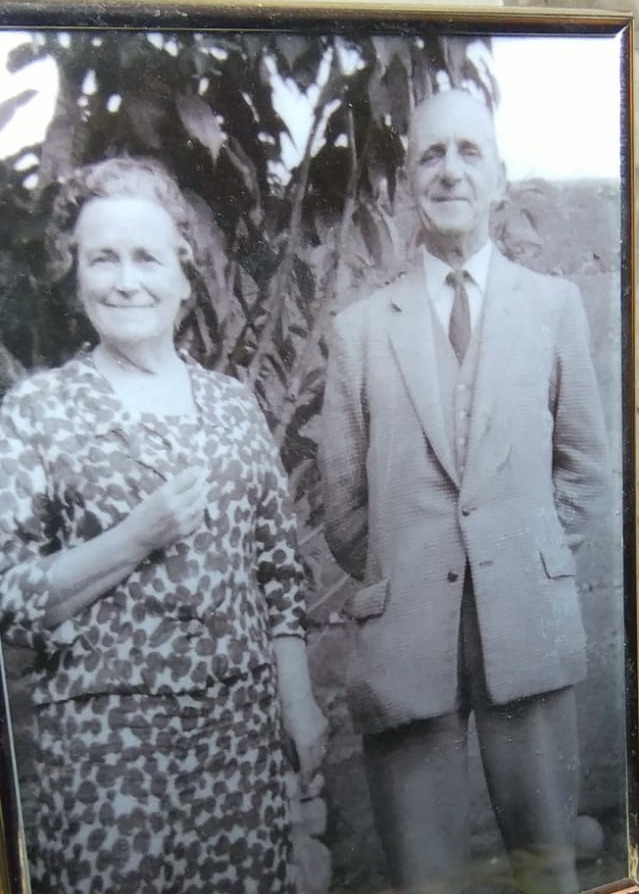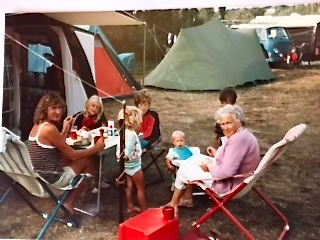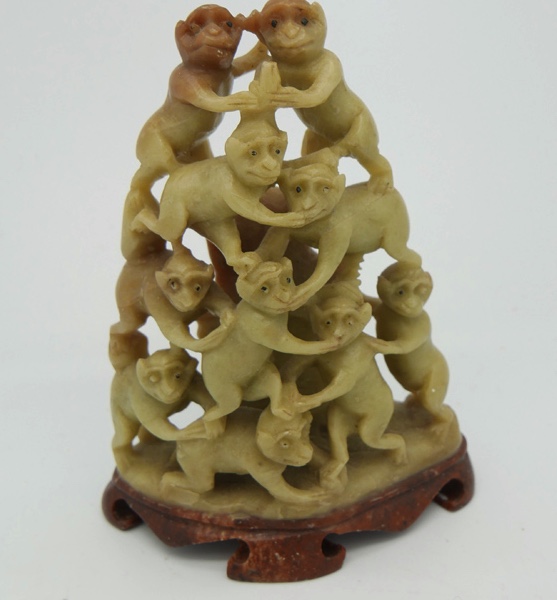On New Years Eve we were driving along in the car listening to Newstalk on the radio. Sean Moncrieff had a guest on called Susie Dent, who had written a book called Word Perfect about words and their origins. I found the conversation really interesting. I wasn’t aware, but I learned that Susie Dent is the word guru on Countdown. One word in particular that she mentioned, that caught my attention, was the word ‘respair’. Apparently, the English language had preferred to hang on to the word ‘despair’ but ‘respair’ had fallen away a long time ago. According to Susie Dent, it means fresh hope and a recovery from despair. When I looked at my phone later on in the day I noticed her name popping up on Twitter. Someone I follow had liked a tweet of hers where she said “My wish is that ‘respair’ will emerge from the forgotten pages of the dictionary and be on everyone’s lips in 2021”. Somehow, I don’t think anyone would argue with that wish. We’ve all had enough of the other word over the last year (and some…).

When I was around sixteen and studying for my Leaving Certificate I would go to my grandmother’s house on Thursdays after school. She was helping me with my French and some Irish too. I preferred French. My grandmother, or Nana as we called her, lived down the end of the Balbriggan Road, only a few minutes from the school. I would knock on the window because most days she would invariably be in the living room watching television. I remember the living room fondly. The mantlepiece was one of those old brown tiled ones that were popular in the 1950s. There was an old clock in the middle, which was flanked by a soapstone monkey carving, (one of the ones where the monkeys are piled up on top of one another) and a little rabbit with a chip out of it. (My father and his younger brother David had bought her the rabbit when he was a child). There was also a shiny brass mortar shell casing that my grandfather had taken as a souvenir during his time on the battlefield of the Somme. Her beloved piano was to the left and her big adjustable chair was in the corner beside the window. The old black telephone was beside her on a small table. On the rare occasion it rang and she would glare at it for disturbing her peace. The Calor heater provided the backdrop smell and sound making the room very cozy.
She had her favourite television shows, Emmerdale Farm and Countdown. I usually had to wait until Countdown finished before we would start our lesson. I thought Countdown was boring and I didn’t like the noise of the Countdown clock so I would go and make the tea for both of us. Nana however was glued to Countdown. She was really good at it. She had a love of words you see. A love of language, of literature and history.
I had an inkling, even at that age, that Nana wasn’t your ordinary grandmother. She was born in 1904 and in about 1921 she won a scholarship to University College Dublin (UCD). The story was that there was a move in Wexford Corporation to award the scholarship to the highest achieving boy. The father of the late Tánaiste (Deputy Prime Minister ) Brendan Corish, was chairman or mayor of the Corporation. He stood up at the meeting and said “The girl won it fair and square. She should get the scholarship”. This was how my grandmother became the first woman from Wexford to go to university. She boarded with the Loreto Nuns on Stephen’s Green during her time in UCD. When she graduated from university she didn’t disappoint her benefactors. She came first in her French degree. She got a medal but was disgusted because the money prize was awarded to the boy who came second. As a feminist that didn’t sit very well with her.
She had perfected her French during her university years where she spent her Summers in Concarneau in Brittany and in Coutances in Normandy. She photographed some of the villages destroyed in the First World World War. My father recalls looking at television footage of the Second World War where his mother could tell them who had lived in the bombed-out houses that were shown in the film reels. She would say “ ça c’est la maison de le docteur …Monsieur le …” the names escape him now so many years later. She told him about the family she stayed with in Coutances where the father, son and grandson had fought in the Franco-Prussian war. They grew hyacinths in the sunroom. One of the plants was growing out of an old German pickelhaube helmet which still contained the skull of the unfortunate previous owner (or the ‘Boche’ as the French man contemptuously referred to him). In later years her daughter, my Aunty Mary and her husband John, took Nana to France with them on their annual family holidays. Nana stayed in the Manoir and joined the family during the day on the adjoining campsite. Mary told us that in the evenings Nana would sit in the square with the old French ladies chatting away like a native and none of them would believe that she was anything but French. In the campsite she was fondly known as Mamie by everyone. When she returned to Ireland off the Rosslare ferry she spent time visiting her sisters Betty and Peg in Wexford before returning to Skerries.

Her language lesson had a pattern. We would take a verb and go through all of the conjugations. Having gone through each tense, which she neatly wrote in columns, then it got to her favourite part of the lesson which was to talk about all the words that were related to the verb in question. She would talk at length about the origin of the word and list out reams of words that stemmed from or were related to that particular verb or word. She could also seamlessly cross between languages showing how most languages borrow so many words from each other. This was her passion. She told me once, for example, that the Swedish word for desk is ‘scrivbord’. The word ‘scríobh’ (pronounced the same) means “to write’ in Irish and ‘bord’ is the Irish word for table. Only about five years ago that little nugget came in handy. I was in Uppsala with Michael visiting my Swedish friend Maria and her parents, Gun and Lennart. I, along with my two friends Sinéad and Sheena, had stayed in Sweden for a magical five weeks when we were sixteen years old. (Sinéad stayed with Madeleine and Sheena with Ulrica). Now almost thirty years later I was back visiting the Rubbetoft family. During the conversation Maria, for some reason, asked me what the English word was for “you know a table that you write at” I jokingly replied with the Swedish word ‘scrivbord” and, considering my knowledge of Swedish- which consists of; ‘jag ålskar dig’ (I love you) my reply took everyone by surprise. Thank you Nana. See, I was listening! Maria became a grandmother last week. Now there’s a lucky grandchild.
Nana had great stories. One of my favourites was the story about the time she saw the ghost when she was a young teacher in the Teacher Preparatory College at Ballyconnell in Falcarragh County Donegal. This was in the late 1920s. She taught languages and music. The director gave her a blank cheque to go to Piggots in Dublin to buy all the instruments for the orchestra. She told me that she was in bed one cold night and she woke up and the room had a very unnatural light. There was an old man in a tartan dressing gown sitting in front of the fire that was lighting in her room. She realised that she could see the flames of the fire through his body. When I asked her what she did she said she ducked under the bed covers and said a decade of the Rosary! The next day she told the nuns what happened and they said she had seen John Olphert, the former owner of the house. The nuns also said that under no circumstances was she to say anything as it wouldn’t do to frighten the young students. Apparently he always appeared around that time of year and there is a gravestone in the garden that reads “here lies John Olphert among the flowers that he loved”.
She cherished her time in Falcarragh and she married my grandfather there. I couldn’t engage her on the topic of her wedding. That was one she kept for herself. It appears that her family weren’t too keen on the idea of her marrying a soldier, so they had eloped and married with the help of the Loreto nuns in Falcarragh.
In 1989, when I was working in London, I came home for a visit. Nana was in Beaumont hospital. She had gallstones and had a series of three operations over one weekend. Although she had already begun to repeat herself quite a lot as she got older, the operations were obviously just too much for her ageing body to take. Between the medication and the trauma she was confused and quite distressed. With the bright lights and the background noise in the hospital she had convinced herself that she was in Charles de Gaulle airport. I’ll never forget what she said to me …“and there I was in Charles De Gaulle airport, walking around in my slippers like Brian Boru” It was funny. But it was so sad too. That was when I realised it would never be the same again.
In the years that followed Nana drifted into Alzheimers. She didn’t lose her words but they made less and less sense. It was heartbreaking to witness a great mind gently drift away. Her past came back to her. It was more real than the present she was living in. (Which wasn’t a bad thing). The staff in the nursing home would say that they wouldn’t know which language to expect her to speak. On some days she could be in France and some days back in her beloved Falcarragh speaking Irish. She also talked a lot about Wexford and her siblings and asked for Tom, her husband, when we visited.
I brought my new-born daughter to see Nana not long before she died. She was her first greatgrandchild. She held the baby tight and said “isn’t he a lovely little fella”. A couple of years later we bought our house on the beach. The name of the house was Falcarragh. It was named by the previous owners who were cousins of Michael’s father. Their mother was a Branagan. The Flanagans had a sister who was a nun in Falcarragh who died young from gastroenteritis. They named the house in her memory. Like my grandmother, we too have happy memories of our Falcarragh.
I like to think that Nana’s words live on in her family, in her children, grandchildren and greatgrandchildren. That they weren’t lost when she passed on in 1998. My father’s novels are evidence of this if any were needed. I am now starting his new novel ‘Landfall’ which is based in Elizabethan times. I never fail to be blown away by his knowledge of history and his way with words. I’m lucky to have him to run things by. He always has interesting insights for me. He is his mother’s son for sure.
I ordered my copy of Susie Dent’s book “Word Perfect”. It’s a book my Nana would have enjoyed. I now follow Susie Dent on Twitter. Yesterday’s word was ‘crambazzled’: 19th Century Yorkshire Dialect for looking prematurely aged from excess drinking. Whilst feeling quite crambazzled myself I am sure looking forward to a bit of respair in 2021.


Ali, I just love reading your stories! Keep writing ❤️❤️
LikeLiked by 1 person
What a beautiful insight into a family history
Well done Alison for sharing
😘😘😘
Regards Pat
LikeLiked by 1 person
What a wonderful story, so full of history, and very interesting. Your grandmother was an amazing person.
LikeLiked by 1 person
What a lovely piece with such happy memories. Happy New Year. Orla x
LikeLiked by 1 person
Brilliant, what lovely memories of your Nana. And her fantastic recall of words and languages, a remarkable woman no doubt. Heres to more of your writings and some proper respair for 2021. Happy new year to you and all the Family.
Myles.
Ps Regards to my fav teacher !
LikeLiked by 1 person
Thoroughly enjoyed reading this Ali. Your Nana sounds very unique and that does not surprise me given the talent within your family. You are the image of your Nana. A very handsome couple.
Jackie x
LikeLiked by 1 person
Beautiful! I remember her well!
LikeLiked by 1 person